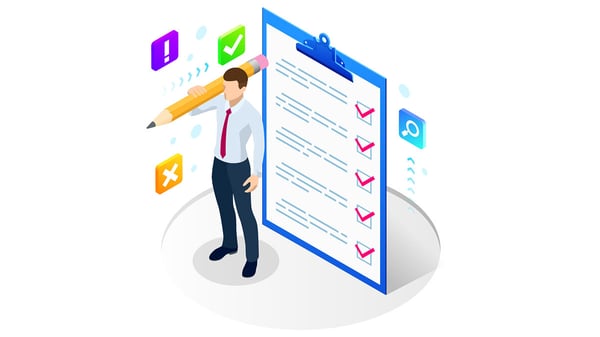 Your organization has decided on a major software update and you undoubtedly have many questions. Do you need an ERP implementation plan? What are the benefits of having a project plan? What can a project plan help prevent?
Your organization has decided on a major software update and you undoubtedly have many questions. Do you need an ERP implementation plan? What are the benefits of having a project plan? What can a project plan help prevent?
Having a project plan before starting an ERP implementation is a bit like having a map to get to a place you have never been to before. A successful implementation can be nearly impossible unless you have an ERP system implementation project plan of all the things you need to do to get there.
Key Elements of an ERP System Implementation Project Plan
1. Determine Tasks to be Done Early
Starting without a plan will run the risk of missing vital steps that would be easier to complete in the beginning of the project. For instance, one best practice built into an ERP plan is setting up data migration early. By doing the data migration later in the project, such as after the software has been configured, you could have problems during implementation. Remember that the sooner you start crucial steps in your project plan, the more likely you are to resolve any issues you may come across. Finding problems early in the project is perhaps the biggest benefit of an ERP implementation plan as it also gives you more time to solve them. Rather than scrambling near the end to fix an issue, you can handle it before time is of the essence.
2. Map Your Progress
When starting an ERP project, you should have an idea of exactly what tasks are needed to go from the beginning of the project to going live with the software. Having a plan can help you define the path of progression through those steps that are required to get to your final outcome. A plan will also help you see what progress you have made and what steps are still needed. An ERP project can feel like a confused jumble of different tasks that need to be done by different people. A plan takes the confusion and turns it into an organized list of tasks that have been completed, and those yet to be done.
3. Compare Goals Against Reality
Another benefit of a plan is that you and your team will have something to compare against the reality of the project. As you begin your implementation you may have goals for what the software needs to do and what advantages your organization will have from it. But as you write down a plan, you may see that some of those goals aren’t as possible as you first thought. Perhaps you will discover that a target can’t be completed at all in an initial phase, or one task you scheduled near the beginning of the project would be better if completed later. Knowing how the current reality compares to the aims of the project can help you keep everything on track.
4. Prevent Mistakes
A vital reason to have an ERP project plan is the prevention of mistakes throughout the implementation. As the plan takes shape, there will be many steps to be completed. Each of these, even the smallest tasks, are important for the project’s success and none can be skipped. By having each of these written down into the project plan, you can prevent future mistakes down the line caused by missing a step. One way to prevent mistakes is to determine what success looks like for your organization. Take a look at which departments are going to be using the software and find out what success mean to them. Once you know what a successful project plan looks like, you can catch missteps as they happen.
5. Set up Communication Plans
Something that should be part of any ERP system implementation project plan is setting up a recurring meeting with project managers on a weekly basis. This should be done as one of the first steps of the plan and can be a real benefit to the project. If you start your ERP project and don’t have these meetings already in place, you may find it difficult to get onto everyone’s schedules. Or worse yet, you may find that once you do begin the meetings, they turn up additional tasks that should have been added to the beginning of the project. Setting up meetings early is a best practice that can get communication flowing from the start and prevent errors later.
6. Define the Outcome You Want
One final benefit to an ERP project plan is being able to define, and therefore achieve, the outcome you want to have. In fact, once you know exactly what results you want at the end of your project, the plan will practically write itself. Start by writing down everything you need from the implementation, and then work your way backwards to determine each step to get there. Unless you have every step laid out in a clear plan, you will never get the outcome that you want from your project.
Like driving a car to a new destination without a roadmap, you won’t reach your goal without a guide to lead the way. There are many benefits of an ERP system implementation project plan, and the most important is knowing where you are going and how to get there.

